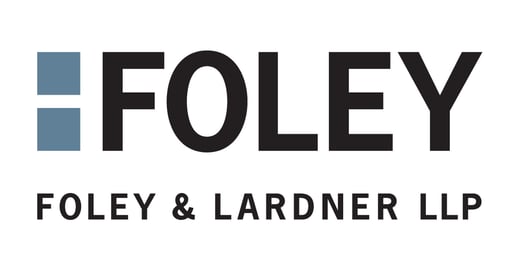Legal Ops play a crucial role in supporting legal departments, ensuring they are as effective and efficient as possible.
Lawyers’ time is precious. Despite this, many legal professionals find themselves endlessly mired in time-consuming, low-value administrative duties.
That’s where legal operations (aka legal ops) comes in. Effective legal ops frees lawyers from managerial/administrative tasks, allowing them to instead focus their time and energy on what really matters.
This piece will examine what legal ops is, the parallels between legal and sales ops, how it affects contract lifecycle management (CLM), the role of the deal desk, and how legal ops defines in-house legal maturity.
What is legal ops?
Legal ops can be described as: “the strategic planning, financial management, project management, and technology expertise that enables legal professionals to focus on providing legal advice.”
You don’t hire lawyers for their administrative or organisational expertise. While these are certainly valuable qualities to have, lawyers ultimately serve a higher function: to provide outstanding legal advice and safeguard your company from legal issues further down the line.
Recognising this, the most successful — and mature — legal departments are investing heavily in legal ops. By enabling lawyers to focus solely on their primary objective, they can ensure greater results and productivity.
This line of thinking means that the legal ops software market has exploded in recent years. Indeed, it is expected to achieve a compound annual growth rate (CAGR) of 14.1% from 2020 to 2027.
Parallels with sales ops
You may have previously encountered the concept of sales ops. This is how McKinsey refers to sales ops: “A strong sales-operations function can drive revenue growth by reducing the time reps spend on various administrative tasks, speeding up the sales process, and improving the experience for the customer.”
Sales ops is a wide-ranging term encompassing a range of different tasks and responsibilities: designing sales strategies, assigning accounts, managing the CRM, tracking sales data optimising sales processes, and so on.
In other words, technology — combined with human resources — coordinates a potentially disparate team. It improves the efficiency of how they work, making it easier to manage and nurture leads. Ultimately, it enables them to achieve both their individual goals as well as the wider business goals.
Legal ops has similar aims: tech is leveraged to manage and streamline processes, ensure the legal team is data-driven at all times, and coordinate overall team activity.
Why contract lifecycle management is such a crucial aspect of legal ops
Contracting plays a crucial role in a lawyer’s day-to-day responsibilities.
Contract lifecycle management (CLM) — the management of an organisation’s contracts from initiation through execution, performance, and renewal/expiry — is therefore the hub of legal ops. It is akin to a sales team’s CRM, arming lawyers with crucial information, fostering team-wide collaboration, and ensuring all documents and version histories are kept under one roof.
ThoughtRiver’s Contract Acceleration Platform is a vital part of the CLM process. ThoughtRiver speeds up the vital final mile of contract negotiations, which allows sales and procurement to finalise deals faster and realise the full value of each contract.
The role of the deal desk in legal ops
A deal desk can be defined as: “... a centralised location to consolidate information and representation from multiple departments — specifically, ones with a significant stake in facilitating high-value, complex deals. It might involve any team that can help conduct that process, including legal, sales, product, and finance.”
The deal desk is a good example of legal ops and sales ops combining to optimise work and remove the friction from contracting. It consists of a team of experts utilising specialist tech to add value and optimise efficiency by templating and automating frequent tasks.
Essentially, it oversees a wide range of critical functions: updating existing contracts, amending deals under negotiation, redlining third-party papers, checking liability, and assessing against the business playbook.
The deal desk allows legal ops and sales ops to combine as effectively as possible. It ensures that a cohesive, collaborative, cross-departmental approach is taken to getting deals over the line. By bolstering efficiency, the deal desk maximises the value realised from each deal.
How legal ops ensures in-house legal maturity
Every department has been asked to do more with less. This is a common ask, and legal is no different.
In fact, general counsels reportedly expect a 25% greater workload in the next three years — yet 88% of them are also planning budget cuts.
This presents an obvious challenge. In-house legal teams must become more efficient with fewer resources, doing this in a way that does not subject the business to risk, cause unnecessary delays, or increase the likelihood that deals will collapse.
The answer? Investment in legal ops and legal tech.
By investing in smart tech, legal will be able to better serve sales, procurement, and the wider business as a whole. In fact, they will be better placed to self-serve — and all without subjecting the business to undue risk.
This is the overarching link between legal ops and in-house legal maturity. By embracing technology (and ways of working) that add speed and increase efficiency, legal can deliver the maximum value of each deal while safeguarding their company from risk.
The legal ops imperative
Formula 1 drivers might be great behind the wheel — but you wouldn’t ask them to change their own tyres. Likewise, it makes little sense to burden in-house lawyers with the wide range of administrative duties that it takes to run an effective legal department.
Investing in legal ops will transform your legal maturity. Legal ops will free your lawyers’ time and focus, enhance your approach to contract lifecycle management, and facilitate the effective running of a centralised deal desk.
It will allow your legal department to do more with less — achieving greater value quicker, easier, and more efficiently than ever before.
So what are you waiting for?
Key takeaways
- Effective legal ops drives in-house legal maturity.
- It facilitates collaboration with sales ops, allows lawyers to focus on what really matters, and ensures that the full value of each deal is realised.
- By investing in legal ops, legal departments can transform their maturity, drive efficiency, perfect their contracting process, and do more with less.




